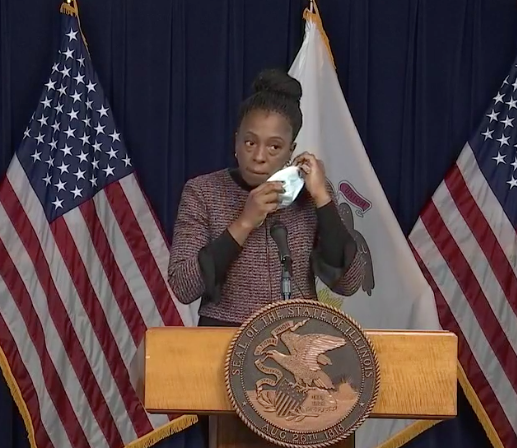
CHICAGO (WBBM NEWSRADIO) — Illinois government's top medical official on Friday tried to rebut misinformation circulating about the COVID-19 vaccine, including whether it contains material from aborted fetuses.
Reporters asked questions about concerns some people may have about the quickly developed vaccine that is being distributed across the U.S. Among them: Does it spring from fetal material, and should people who oppose the use of fetuses for research be forced to take the vaccine?
“There are no aborted-fetal cells or fetal tissue in the vaccine,” Ngozi Ezike, director of the Illinois Department of Public Health, said during the Pritzker administration’s daily coronavirus briefing. “There are no microchips and there are no preservatives in this vaccine.”
Ezike was also asked whether the vaccine contains DNA that could alter someone’s own DNA. She said the vaccine is mRNA-based and contains no DNA or virus material. mRNA tricks the body into generating an immune response.
Another question posed by a reporter: Can someone who gets the vaccine develop Bell’s palsy, a facial paralysis, or other harmful side effects? Ezike said there’s no indication from research material on the Pfizer COVID-19 vaccine that it would cause Bell’s palsy. If someone did, physicians would still have to determine if it could be traced to the vaccine or another factor, she said.
Federal regulators are evaluating a second vaccine, developed by Moderna, which could also be approved for emergency use. Illinois has already begun vaccinating medical professionals with the Pfizer vaccine, which requires two doses.
Ezike’s department on Friday reported 7,377 new confirmed or probable cases of coronavirus, including 181 deaths. That takes the state’s pandemic death toll to date to 15,015 lives lost from COVID-19.
Gov. JB Pritzker said he would no longer hold daily coronavirus briefings — an indication, he conceded, that coronavirus metrics generally are improving in the state. Ezike said Illinois did not see a case surge from the Thanksgiving period, when it was feared families would mix households against the advice of doctors.

